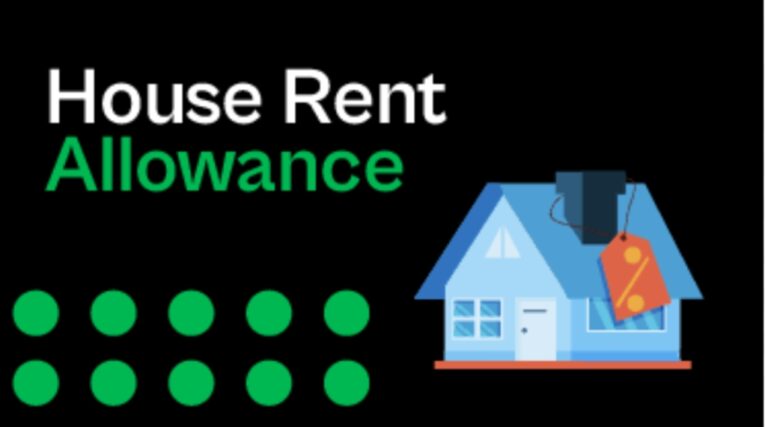Paying rent for accommodation? You may be eligible to claim tax exemption on the House Rent Allowance (HRA) received from your employer under the Income Tax Act, 1961. HRA is a common component of salary, designed to help employees meet rental expenses and also offers significant tax benefits if certain conditions are met.
Relevant Legal Provision:
Section 10(13A) of the Income Tax Act, 1961 read with Rule 2A of the Income Tax Rules, provides for HRA exemption.
Who Can Claim HRA Exemption?
- Salaried individuals receiving HRA as part of their salary.
- Individuals paying rent for residential accommodation.
- Self-employed individuals cannot claim HRA exemption but may claim deduction under Section 80GG under specific conditions.
Conditions for Claiming HRA Exemption:
- The employee should be residing in a rented house.
- Rent must actually be paid — mere eligibility or receipt of HRA is not sufficient.
- The employee must not own residential accommodation at the place of employment.
- If rent exceeds ₹1,00,000 per annum, the employee must provide the PAN of the landlord to the employer.
Amount of HRA Exemption:
The exemption is the least of the following three amounts:
- Actual HRA received.
- Rent paid minus 10% of salary.
- 50% of salary, if the employee resides in a metro city (Delhi, Mumbai, Kolkata, Chennai)
OR
40% of salary, if the employee resides in a non-metro city.
Meaning of “Salary” for HRA Calculation:
For HRA purposes, “Salary” includes:
✅ Basic Salary
✅ Dearness Allowance (if considered for retirement benefits)
✅ Commission (if based on a fixed percentage of turnover achieved by the employee)
It excludes other allowances and perquisites.
Illustrative Example:
Suppose, an employee resides in Mumbai and earns:
- Basic Salary: ₹50,000 per month
- DA (part of retirement benefits): ₹10,000 per month
- HRA Received: ₹20,000 per month
- Rent Paid: ₹18,000 per month
Step 1: Compute Salary for HRA
Basic Salary + DA = ₹50,000 + ₹10,000 = ₹60,000 per month → ₹7,20,000 per annum
Step 2: Calculate the Three Values
- Actual HRA received = ₹20,000 × 12 = ₹2,40,000
- Rent paid minus 10% of salary = (₹18,000 × 12) – 10% of ₹7,20,000 = ₹2,16,000 – ₹72,000 = ₹1,44,000
- 50% of salary (since Mumbai is metro) = 50% of ₹7,20,000 = ₹3,60,000
Step 3: Exemption
Least of the above three = ₹1,44,000
Taxable Portion of HRA:
HRA Received ₹2,40,000 – Exempt ₹1,44,000 = ₹96,000 is taxable.
Documents Required for HRA Claim:
✅ Rent receipts or rental agreement
✅ Landlord’s PAN if annual rent exceeds ₹1,00,000
✅ Proof of payment if required by the employer or assessing officer
Key Points to Remember:
- Even if living with parents and paying rent, HRA exemption can be claimed, provided genuine rent transactions occur with proper documentation.
- If you own a house in the city where you work and stay in a rented house, exemption may not be allowed.
- For self-employed individuals or those not receiving HRA, deduction under Section 80GG may be available subject to conditions.
Conclusion:
HRA exemption under the Income Tax Act, 1961, is a valuable tax-saving tool for salaried individuals who stay in rented accommodation. To maximise benefits and avoid disputes, maintain proper documentation and comply with the specified conditions. Consulting a tax advisor is recommended for complex scenarios.
Frequently Asked Questions (FAQs) on HRA Exemption
Q1. Who is eligible to claim HRA exemption?
Only salaried individuals receiving HRA as part of their salary and living in rented accommodation can claim HRA exemption.
Q2. Can self-employed individuals claim HRA exemption?
No. Self-employed individuals cannot claim HRA exemption but may claim deduction for rent paid under Section 80GG, subject to specified conditions.
Q3. What if I pay rent but HRA is not part of my salary?
You cannot claim HRA exemption, but you may claim deduction under Section 80GG, provided other conditions are met.
Q4. How is HRA exemption calculated?
HRA exemption is the least of the following:
✔ Actual HRA received
✔ Rent paid minus 10% of salary
✔ 50% of salary (metro cities) or 40% of salary (non-metro cities)
Q5. What cities are considered metro cities for HRA purposes?
Delhi, Mumbai, Kolkata, and Chennai are considered metro cities.
Q6. Is it mandatory to provide the landlord’s PAN?
Yes, if annual rent exceeds ₹1,00,000, the employee must provide the landlord’s PAN to the employer to claim HRA exemption.
Q7. Can I claim HRA exemption if I live with my parents?
Yes, if you pay rent to your parents and they acknowledge it as income. Proper rent receipts and bank transactions are advisable.
Q8. Can I claim HRA exemption if I own a house but live in a rented house?
Generally, if your owned house is in a different city or not available for your use, you may claim HRA exemption on the rent paid for your current accommodation.
Q9. Can both husband and wife claim HRA exemption?
Yes, if both are salaried, receive HRA, and both pay rent separately. Proper documentation is essential.
Q10. Is rent paid to relatives allowed for HRA exemption?
Yes, but it must be a genuine transaction with supporting documents like rent agreement, receipts, and proof of payment. The relative must also disclose rental income in their tax return.
